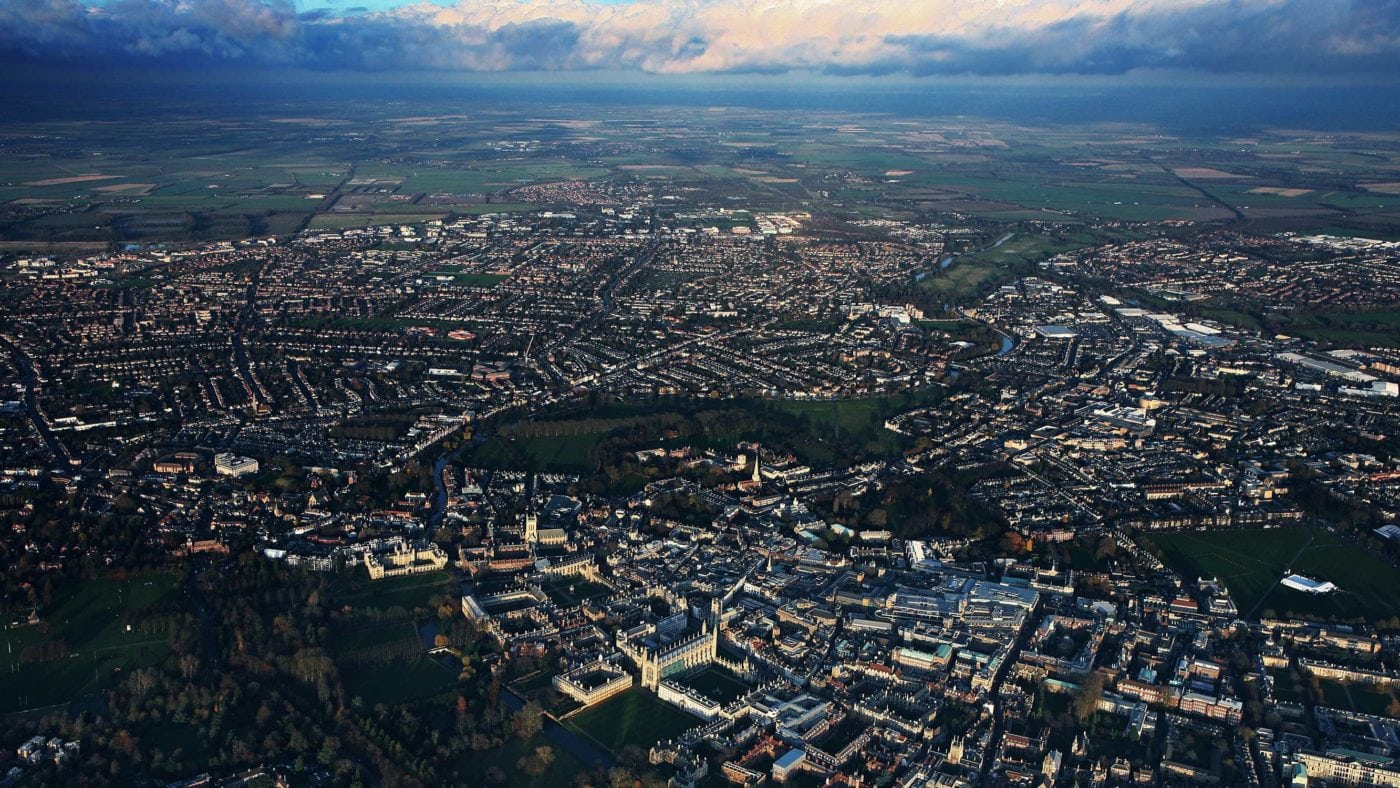Once upon a time, before Partygate and a host of other scandals killed his premiership, Boris Johnson pledged to turn the United Kingdom into a ‘scientific superpower‘. Almost 60 years ago Harold Wilson called for something similar, a ‘new Britain’ forged in the ‘white heat’ of technological progress.
The rather more prosaic truth is that the UK has not been a hotbed of technological growth for many decades. There is, however, one government project which would go a long way to putting things right – the Oxford-Cambridge Arc. He might now have dropped out of the contest, but Sajid Javid was absolutely right when he pledged to resume work on this vital initiative. The remaining candidates would do well to listen to him.
Understanding just how severe our twin crises of productivity and business investment really are should be a pre-requisite for whoever becomes the next Prime Minister. To take just one startling statistic, if business investment continued at the 2009-2015 trend then we would expect it to currently sit at more than £70bn, rather than just over £50bn. Or how about the fact that productivity grew by a measly 0.3% a year on average during the 2010s?
These aren’t just matters of dry macro-economic trivia, they translate into significantly worse outcomes for ordinary people, with real household disposable income before housing costs lower than in 2007 even before the cataclysm of the pandemic.
As with so many of our economic and social ills, much of this is down to our warped approach to housing. In a vaguely functioning market, cities that are more productive would see housing supply rise in tandem with increased demand. If, however, supply is rationed that boost in productivity just means ever-higher house prices. Again, this isn’t some economic abstraction, it’s plain to see not only in London, but in Oxford and Cambridge too.
Between 2000 and 2020 the average price of a property in Oxford grew from £124,000 to over £400,000. If housing had merely risen with inflation then the average price would be just £185,000. In Cambridge it’s a similar story, with prices rising by 264% (13.1% per year) over the same period.
However, Cambridge’s tale is slightly more optimistic than its university rival’s. Since mid-2016 house price growth has been stagnant in the city, thanks in no small party to a council willing to build houses where they are needed. Indeed, space has been earmarked for almost 50,000 more homes by 2041 in Cambridge’s most recent local plan. That promises even greater things for a city that is already home to world-renowned, innovative companies such as AstraZeneca.
The point of the Ox-Cam Arc was to turn the area between Oxford, Milton Keynes and Cambridge – already the fastest-growing part of the UK – into an economic powerhouse. Bear in mind that even with our burdensome regulations and damaging planning restrictions, this region already contributes around £110bn a year to the economy.
So how would it work?
In its July 2021 consultation document the Government called for a spatial framework, with more liberal planning and transport rules to unleash the region’s growth potential. Property consultants Bidwells estimated that by following this strategy the area covered by the Arc could see its contribution to GDP more than double by 2030, to £235bn a year.
Unfortunately, a consultation is just that – a consultation. The proposals were quietly dropped in April of this year without any explanation, leaving even the people working for the Government on the Arc confused. But given that the project had a target of building in the region of 1 million new homes, it’s a safe bet that fear of the Nimbys was one of the main factors driving the climbdown.
Blackstock Consulting estimate that decision could end up costing the economy about £50bn. It will stand as another example of the Government just not taking growth as seriously as it should do, which is particularly galling given the decade of stagnant productivity and wage growth we’ve just been through.
His may have been a short-lived campaign, but we should thank Sajid Javid for unapologetically backing the Arc. As he recognised, the Arc is a fundamentally good idea, one that could go a long way to getting us out of the rut the UK has been in since the Great Recession. It would also send a huge political signal: that growth, innovation and new housing trump the forces of sclerotic Nimbyism.
If any of the remaining candidate want to prove to MPs and Members that they are serious about restoring growth and making Britain a scientific superpower, they should listen to Javid and bring back the Arc.
Click here to subscribe to our daily briefing – the best pieces from CapX and across the web.
CapX depends on the generosity of its readers. If you value what we do, please consider making a donation.


